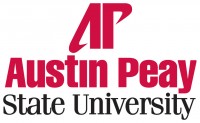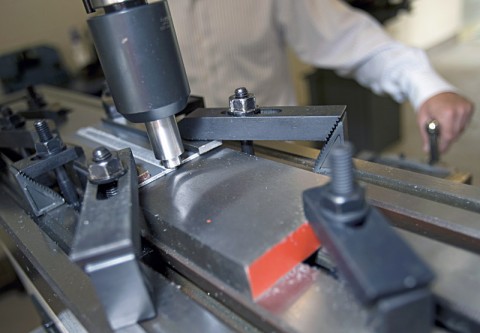 Clarksville, TN – In 1991, The Welding Institute in England discovered a strange new method for joining two metals together without melting the two pieces in a traditional fusion welding process.
Clarksville, TN – In 1991, The Welding Institute in England discovered a strange new method for joining two metals together without melting the two pieces in a traditional fusion welding process.
The process, known as friction stir welding, softened and deformed the metals and then forged them together as one using a rotating tool. The welding process used heat and force to join the metals, similar in nature to the way blacksmiths forged swords and armor in the Middle Ages.

The process is especially useful in the welding of lightweight aluminum because this can be extraordinarily difficult using traditional fusion welding processes that melt the metals in the joining process. Because friction stir welding is a solid-state process, the likelihood of holes forming in the weld is reduced. The lower welding temperature also crates a stronger bond than what results from traditional welding. Because of this advantage, the process has garnered the attention of the aerospace, defense and automobile industries, and when The Welding Institute’s patent expires in the next few years, companies will seek to find the few people out there with knowledge of the process.
Many of those individuals may come from APSU. Earlier this year, Longhurst fitted a manufacturing mill inside the campus’ Hemlock Semiconductor Building with a simple cylindrical welding tool. He then took that tool and conducted the University’s first friction stir weld, connecting two pieces of plastic.
“There are very few places in the world that are doing this,” Longhurst said. “In the spring, we’ll be doing a lot more research on this, and we want students to join in. We’re building a program. And with Austin Peay being one of the few universities to start doing research on this, we can put our graduates in a position where they’re one of a select few that has this knowledge and skill set.”In recent years, NASA, the Navy, aerospace companies such as Boeing and Lockheed Martin and automotive companies such as Honda have used the process. Once The Welding Institute’s patents expire, Longhurst expects this process to become one of the more preferred welding processes. And because even small manufacturers already own the equipment needed for friction stir welding – a basic manufacturing mill – he hopes the APSU program will help make local companies more competitive for major government and private sector contracts.
“You just need a milling machine, a very common machine tool,” he said. “Every company that does any manufacturing has a milling machine, so you can just put in a milling machine and do that. It’s a very simple process. If we can get small companies to adopt this, we can grow the technology and manufacturing industry in Tennessee.”
For more information on friction stir welding or the research going on at APSU, contact Longhurst at longhurstw@apsu.edu.


